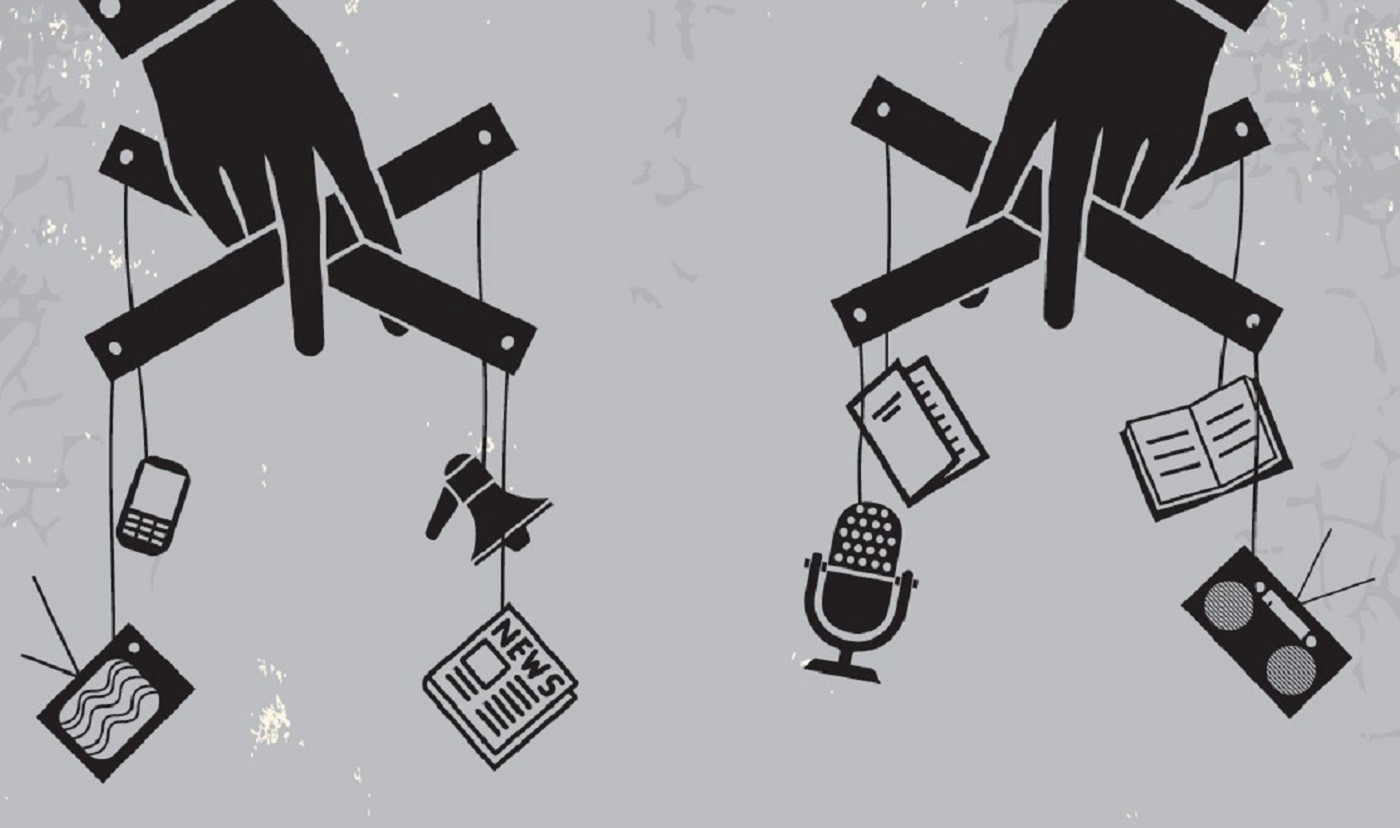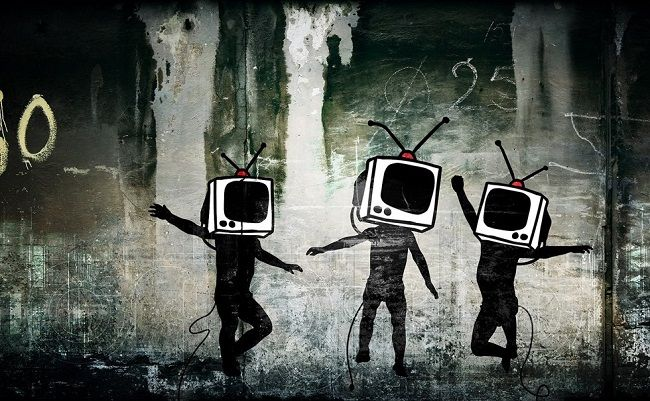
Annotation
The scientific article examines the technologies of manipulative influence both on the individual and on society as a whole, as well as their application in political processes, such as an election campaign. The main features, methodological principles and directions of manipulation are revealed. The technological concept of changing the mass consciousness, which is called the "Overton Window", is considered, its main levers of pressure are determined, as well as the mechanisms of opposition to it and the consequences of its application.Key words: manipulation of consciousness, Overton's Window, political influence, consciousness, suggestion, subconscious level.
We witness manipulation every day. Media channels, mass media, Internet communications are the tools that are most often used by the subjects of manipulation, and ordinary citizens often do not even suspect that they are manipulating, that instead of their own, they put other people's interests first. This explains the relevance of this issue, because it is of fundamental importance for modern society.
It should be noted that in the history of Russia and earlier there were examples of manipulation of the mass consciousness. For example, the Catholic Church skillfully influenced the minds of people critically exposed to religious dogmas, while it skillfully manipulated both ordinary people and representatives of the upper strata of society in order to achieve their specific goals and establish their own influence.
At the present stage, civil servants, the political elite and the ruling stratum also need to understand and be able to apply manipulation techniques, since they allow them to more effectively implement public policy, lobby their own interests, increase their authority among citizens, expand the range of influence, etc.
Also, ordinary citizens need to understand the basics of manipulation, because with their help people can learn to distinguish propaganda among the daily flow of information, “read between the lines” excerpts from the media and statements of political and public figures, and will be able to analyze information for reliability.
Manipulation is defined in the Big Oxford Dictionary as "devious and insidious influence on people in order to achieve personal gain by unseemly means."
That is, under the manipulative influence on a person it is necessary to understand a mental influence, carried out secretly, and, in most cases, certain harmful to those at whom it is directed.
To learn to distinguish manipulation among the flow of information, it is necessary to identify a number of its characteristic features. These include [2]:
- Manipulative influence is directed to the subconscious sphere, and not to consciousness;
- The main method of influence is not a belief based on a rational basis, but the "implementation" of a reaction to any event or object;
- The influencing factor is not the information itself, but the nature of its presentation;
- Manipulation occurs imperceptibly to those at whom it is directed.
At the moment, there are 2 areas of study and assessment of manipulation technologies:
- An apologetic trend, whose representatives define manipulation as a necessary and inevitable way of influencing mass behavior and consciousness in the conditions of modern reality.
- A socially critical trend, the supporters of which believe that manipulation is similar to invisible violence carried out on a person.
It should be noted that the ultimate goal of manipulation is to create a conformist, layman and mass consumer. For a clear understanding of the essence and qualities of such an individual, it is necessary to define a number of his functions [1]:
- unconditional submission to power;
- implementation of actions required by the authorities and approved by them;
- illusory compensation for really unmet needs for political participation, etc.
A stereotype is a schematized and simplified image of social objects or events that are stable. In a broader sense, a stereotype is a habitual, traditional way of thinking, acting, and perceiving.
Thus, political stereotypes, specially created by the media, become a guideline for various social actors in the field of politics.
A political image can be defined as an image of a political subject or political event, which is artificially created in order to achieve the behavioral reaction necessary for the manipulator.
It should be noted that political manipulation, at the moment, is already a separate subdivision of political science, because it is a fundamentally important political and social factor in the current reality. Consequently, he has specific methodological directions and rationales. Let's dwell on some of them [2]:
- Irrational direction, which is based on the priority of sensory perception over rational. So, society often suppresses the personality, but young people are still characterized by maximalism, harsh assessments, heightened perception of injustice, excitability and increased self-esteem. For example, this approach played a fundamental role in the coup d'etat in Ukraine, where the majority of the protesters were young people under the age of 25, after all, the instillation of the need for radical change was carried out by demonizing the current, legitimate government.
- A stereotyped direction based on a stable and extremely simplified view of the world around us. Young people are often prone to "black and white" thinking, and the guiding principle for them is the choice of "either - or".
- Accelerative direction based on the need for intensive information related to the acceleration of development. An intense and varied flow of information is created, which is very difficult to master intellectually, pseudo-awareness develops.
- "60 to 40". For the formation of the necessary subconscious reaction in the recipient of information, 60% of the information must openly “work” for the required final result, and 40% “testify against” the required conclusion. This is how the effect of the apparent objectivity of information is achieved, and therefore the independence of conclusions.
- Amusement. The information should attract attention, but not stimulate serious thoughts.
- Reliance on the "addictive effect". Habitual events move from the realm of consciousness to the subconscious realm and, therefore, are not controlled by the mind.
- Reliance on the "blank board" effect. Psychologists have repeatedly experimentally established that information that is obtained for the first time is extremely easy to accept and remains in memory for a long time.
- Whipping up a climate of fear and uncertainty. In a state of fear, a person needs help, so it is easier for him to accept “authoritative opinions”.
However, electoral technologies are not limited to manipulation, they also have specific organizational features.
Of course, a candidate on his own will not be able to effectively conduct his own election campaign, even with the necessary skills, intelligence and knowledge, so he creates a team, which includes [1]:
- proxies, in order to carry out the task of expanding the possibilities of the candidate in communicating with voters, while they perform representative functions, meeting with voters on his behalf;
- a candidate support group, whose task is to develop a strategy and tactics for the election campaign;
- agitators whose purpose is to convey to voters the electoral program of a candidate and to recreate his positive image;
- media relations specialists, whose task is to ensure access to the media, as well as to improve the efficiency of their use;
- sponsors who finance the election campaign.
These actions help to solve various tasks, which have the ultimate goal of winning the elections and winning a large number of votes. However, the proof of the advantages of the candidate's program and the promotion of his personal qualities, which plays a special role in Russia, where people vote not for the program, but for the person, are not always the main content of the pre- election campaign.
A separate point is a variety of "dirty" electoral technologies, the use of which is very difficult to prove legally. When using them, a candidate can mobilize passive voters to participate in elections if the mood of politically active voters does not play in his favor. Or, on the contrary, a candidate may provoke the groups of voters who support him not to participate in the elections, increasing pessimistic sentiments in this environment. He can discredit political opponents in the eyes of voters, make unrealistic promises, etc. Also, a candidate and his team can put voters in front of a false choice, using not the programmatic attitudes of the candidates, but the prevailing "political myths" or using the feelings of voters about "political labels" [2].
Speaking of manipulation, one cannot but mention the most dangerous at the moment technological concept of changing mass consciousness, which is called the "Overton Window". In skillful hands, it becomes a dangerous weapon, as it can have both positive and destructive effects on society. Therefore, with the help of this concept, it is possible to make acceptable in society those phenomena or things that until recently were considered unnatural and immoral.
According to the Overton Window, there is a so-called “window of opportunity” for every idea or problem in society. Within this window, an idea can be widely discussed, promoted, and enshrined in legislation. The window is moved, changing the fan of possibilities, from the “unthinkable” stage, that is, completely alien to public morality, to the “current politics” stage, that is, subject to broad discussion, accepted by the mass consciousness and enshrined in laws [4].
It is important to note that these are much more subtle technologies than brainwashing. They become effective due to the systematic, consistent application and imperceptibility to society of the very fact of the impact.
The Overton Window technology is based on the weaknesses inherent in almost any personality. The greatest danger of this technology is that it functions even when it is perceived as a “victim”. Usually, manipulation stops working after its true meaning is revealed. In this case, the impact on the subconscious occurs through the basic needs of a person.
The existing pressure levers used by the Overton Window technology include [3]:
- tolerance;
- euphemism;
- belonging to society (“herd feeling”);
- the illusion of authority;
- legal = correct.
- physiological needs;
- the need for security;
- the need for belonging and love;
- the need for respect;
- cognitive needs;
- aesthetic needs;
- the need for self-actualization.
Tolerance is used as an opportunity to introduce any, even the most immoral, opinions into everyday life. Interestingly, tolerance is described not only as tolerance, but also as voluntarily enduring suffering. It is this definition that suits people who are ready to put up with opposing views, namely, the imposition of these views on them as their own. And the need for belonging and love makes us abandon our views, fearing to cause aggression and discontent in the opponent [3].
Euphemism is an indispensable component for overcoming internal resistance, which helps to establish an internal balance between your own and completely opposite values [3].
Social belonging (“herd feeling”) combines the needs for security, for belonging to society and for respect. Every person speaking to the audience understands how difficult it is to endure these few minutes when all eyes are on you. And if you also have to express your disagreement with all these people, and without using euphemisms? It is rare to find people capable of this [3].
The illusion of authority is an opportunity to try on one's own views, already partly imposed from the outside [3].
Legality is the supremacy of accepting alien norms. The famous psychiatrist KG Jung believed that fanaticism was a sign of suppressed doubt. The person is really convinced of his righteousness, absolutely calm and can discuss the opposite point of view without a shadow of indignation. In the case of the imposition of other people's values, complete conviction does not occur, the doubt has to be suppressed due to the conviction of others. Legality gives every right to do so.
Let us turn to the consequences of using the Overton Window technology.
Perhaps the most terrible consequence of using this technology is that a person loses harmony, and in its place receives endless internal disputes and torments. After all, applying this technology, no one thinks about how to make a person happy. The goal of technology is to get a new vector of development.
After achieving the result, a lot of people are forced to maintain the illusion of accepting other people's values. People are less and less human, losing touch with their roots and culture.
However, this technology can be resisted. First of all, confrontation may consist in refusing to try to be "normal" always and everywhere. The moment “individual” is replaced by “normal” we automatically transfer our own control into the wrong hands. At best, we strive to be comfortable for others, and at worst, we fall under targeted manipulation. It is the culture, morals, customs and foundations of ancestors that help to find their individuality. Integration of this into modern life helps not to break away from their own heritage [4].
BIBLIOGRAPHY:
- Kozyrev GI Fundamentals of sociology and political science: textbook. M.: ID "FORUM": INFRA-M, 2014;
- Political science: Giraud T. Electronic resource: http://all-politologija.ru/knigi/politologiya-zhiro;
- “Destruction technology. Overton window. "Nikolay Starikov. Electronic resource: nstarikov.ru;
- "The Overton Window is a technology for dehumanizing people." Evgeny Khavrenko. Electronic resource: bourabai.ru.


